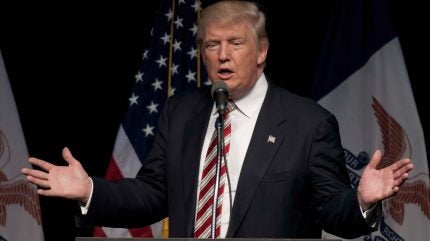
With Donald Trump’s second term as President of the United States, the hotel and hospitality sectors are poised for several shifts.
Drawing on policies from his first term and early indications of his second, we explore the potential opportunities and challenges facing the industry under his leadership.
Economic stimulus and travel growth
Trump’s administration has long advocated for tax cuts and pro-business economic policies, which could be advantageous for the hospitality sector.
Lower corporate taxes and a continued push for deregulation are expected to provide significant relief for hotel owners and operators.
These policies can lead to increased disposable income for consumers and enhanced corporate travel budgets, potentially boosting hotel occupancy and revenue streams.
Moreover, Trump’s focus on stimulating economic growth could foster a favourable environment for both domestic and international travel. With the economy likely to experience a boost, the demand for hotel rooms — particularly for business travel and tourism — is expected to rise.

US Tariffs are shifting - will you react or anticipate?
Don’t let policy changes catch you off guard. Stay proactive with real-time data and expert analysis.
By GlobalDataThis will be particularly relevant as the hospitality industry works to recover from the long-term effects of the COVID-19 pandemic.
Infrastructure developments and international travel
During his first term, Trump placed significant emphasis on enhancing the country’s infrastructure, a trend likely to continue during his second term.
This could include improvements to airports, roadways, and public transportation systems — all of which are crucial for the hospitality industry.
The more seamless travel experience facilitated by these upgrades will encourage more tourists and business travellers to visit the U.S., benefiting hotels across the country.
Furthermore, Trump’s administration is expected to focus on trade agreements that can stimulate international travel to the United States. This could lead to greater numbers of overseas visitors, who will be drawn by favourable trade relations, improved diplomatic ties, and lower tariffs.
These factors are likely to benefit the hotel industry, particularly in major tourist destinations such as New York, Los Angeles, and Orlando, which rely heavily on international tourism.
Regulatory reforms and market expansion
One of the most anticipated outcomes of Trump’s second term is the continuation of deregulation, which could reduce the compliance burden on hotel operators.
Easing restrictions on workforce management, tax codes, and operational oversight would offer greater flexibility for hotel owners and developers. This could potentially lower operational costs, allowing for increased profitability and the ability to reinvest in property upgrades or new developments.
With fewer regulatory hurdles, the hotel industry could also see a surge in new projects and renovations.
Real estate developers may find it easier to invest in new properties, both in the form of new hotel developments and renovations of existing facilities, leading to an expansion of the US hotel market.
Smaller hotel chains may also benefit, as the business-friendly climate encourages innovation and new market entrants.
International travel and visa policies
Under Trump’s first administration, the hotel industry faced challenges stemming from restrictive visa policies that limited travel from certain countries.
This aspect of Trump’s presidency could return in his second term, potentially impacting U.S. tourism numbers. Policies like the “travel ban” from his first term could be reinstated, which may cause uncertainty in the international travel sector.
While this may limit the flow of visitors from specific regions, Trump’s administration may focus on other aspects of global diplomacy, which could still promote tourism.
Changes to visa policies, increased security measures, and a greater emphasis on immigration scrutiny could lead to a more selective flow of international tourists, which would particularly affect hotels relying on long-haul visitors from regions such as the Middle East and Africa.
A Complex landscape for the hospitality sector
Trump’s second term presents both opportunities and challenges for the hotel and hospitality industry.
While pro-business policies and infrastructure improvements are likely to foster growth and innovation, there are concerns around the potential impact of restrictive immigration policies and the rollback of environmental initiatives.
The next four years could see a period of recalibration, with the hotel sector adapting to new regulatory environments and capitalising on opportunities created by a robust economy and a thriving domestic travel market.
While much remains uncertain, one thing is clear: the hospitality industry will need to stay agile to navigate the evolving political and economic landscape under the Trump administration.




